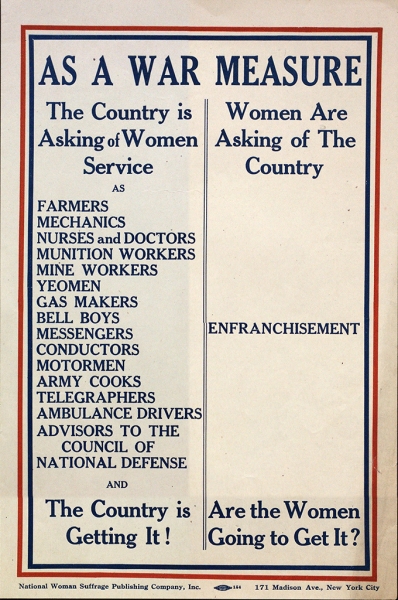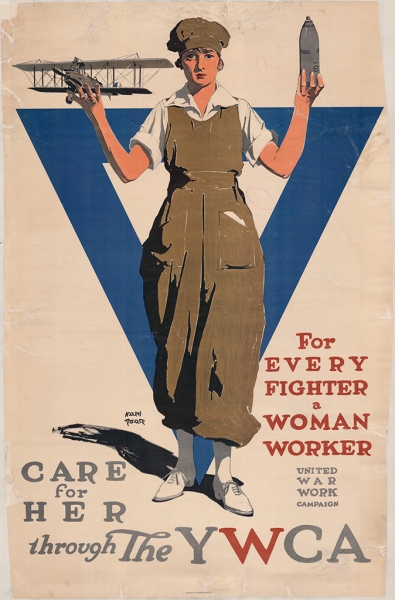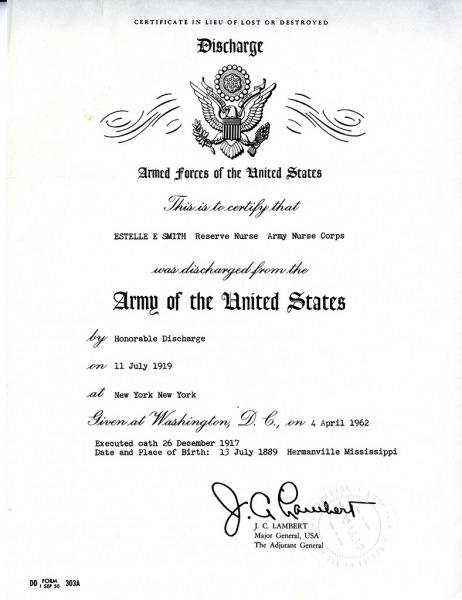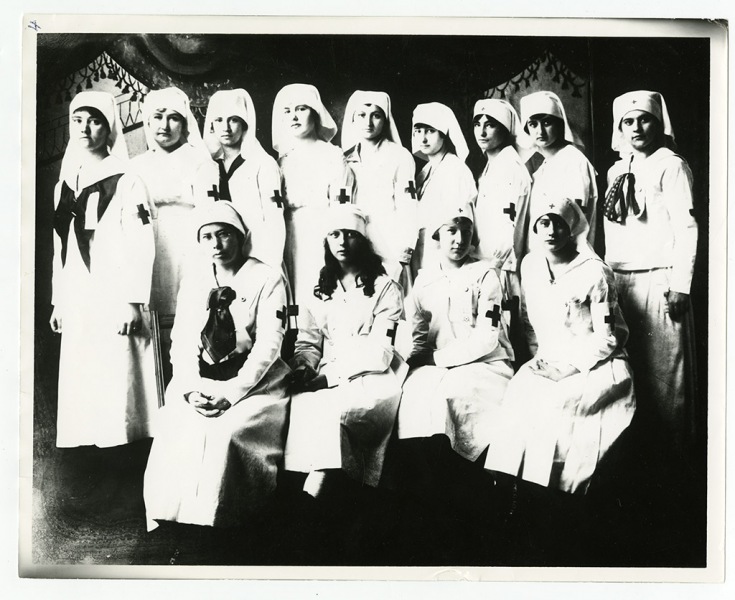With its entry into the Great War on April 6, 1917, the United States was not prepared to provide its army of four million men with adequate warm clothing to survive European winters. Added to the requirements of our own military were the needs of our European allies, who had been fighting for three years and were on the brink of starvation without our help. One newspaper article reported, "Belgian babies are carefully examined to see if they can live without being fed today, while our relief workers feed those who were not fed the day before." In such a dire situation, the federal government turned to the nation's women.
Arkansas’s club women, under the auspices of the Arkansas Federation of Women’s Clubs (AFWC), were already tackling myriad problems found in abundance within a poor, rural state as they worked for better schools, a centralized education system, children’s well-being, and improved medical care. However, within three months of the nation’s entry into the war, Arkansas’s women were placed under the leadership of the Woman’s Committee of the National Council of Defense. At President Woodrow Wilson’s behest, Governor Charles H. Brough appointed the Woman’s Committee of the Arkansas Council of Defense, effective July 1, 1917. The state committee went to work immediately to ensure a viable woman’s committee in each of Arkansas’s 75 counties. As the national Woman’s Committee and its state subsidiaries became functional, newspapers carried articles delineating the responsibilities of both the American Red Cross and the Woman’s Committee. Arkansas’s women worked to meet needs within each organization’s purview.
Arkansas women’s bandage rolling, knitting, and cooking amid shortages were vital to the nation; however, they were also asked to pursue a range of other problems: school truancy and devastating rates of infant mortality, registration of other women in food conservation and willingness-to-serve campaigns, needs of young women who poured into Arkansas’s major cantonment city, and advocacy for women as they experienced wartime employment conditions. Although middle-class club women led the way in the war work, women of all classes and races signed cards indicating jobs they were willing to fill and labored within their own homes to starve the garbage pail and to knit and sew for “the boys” in the trenches of France.
But did women's sacrificial contributions to the war effort affect the suffrage outcome? President Woodrow Wilson, who was not considered a proponent of women's suffrage, may have provided some insight as he struggled with the issue. In a speech before 100 members of the New York state woman suffrage party in October 1917, Wilson noted that he considered this a time for the states of the Union to take action in favor of equal suffrage. Having found that the country depended on women for much of its inspiration, under war conditions the country also depended on women for service, which they had “rendered in abundance and with the distinction of originality.”
In June 1918, following fourteen months of war, Wilson was more convincing as he greeted a delegation headed by Mrs. Carrie Chapman-Catt, president of the National Woman Suffrage Association, and Dr. Anna Howard Shaw, honorary president, by reading to them his reply to a memorial from the French Union for Woman Suffrage:
The services of women during this supreme crisis of the world’s history have been of the most signal usefulness and distinction. The war could not have been fought without them, or its sacrifices endured. It is high time that some part of our debt of gratitude to them should be acknowledged and paid, and the only acknowledgement they ask is their admission to the suffrage. Can we justly refuse it? As for America, it is my earnest hope that the Senate of the United States will give an unmistakable answer to this question by passing the suffrage amendment to our federal constitution before the end of this session.
One year later, the U. S. Congress approved the 19th Amendment and submitted it to the states for ratification.
"Arkansas Women Called into Service by State Division,” Arkansas Gazette, Sunday, July 15, 1917.
“Final report,” Crawford County Woman’s Committee, December 1918.
“President Urges Votes for Women,” Arkansas Gazette, October 26, 1917.
“President Favors Woman Suffrage,” Arkansas Gazette, June 14, 1918.
Elizabeth Hill is the author of two books of Arkansas women’s history. "Faithful to Our Tasks: Arkansas’s Women and the Great War" will be published in February 2017 by Butler Center Books. Her first book, "A Splendid Piece of Work 1912–2012: One Hundred Years of Arkansas’s Home Demonstration and Extension Homemakers Clubs," has been well received throughout the state. As a member of the board of the Arkansas Women’s History Institute, Hill is working with other members to educate Arkansas’s women about their history. She earned her B.A. and M.A. in Professional and Technical Writing at the University of Arkansas at Little Rock.




